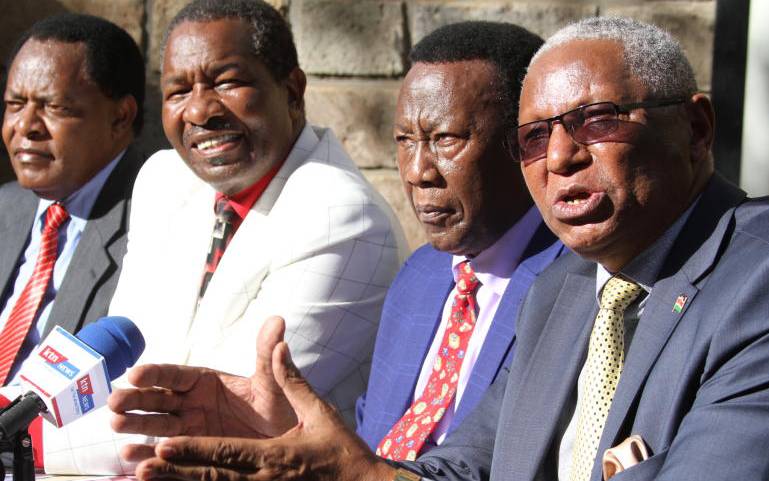
Evangelical Alliance of Kenya (EAK) bishops (from left) John Warari (ABBA Gospel Church), Geoffrey Njuguna (Deliverance Church Langata), Mark Kariuki (General Overseer Deliverance Church) and Stanley Michuki (Kenya Congress of Pentecostal Churches Chair) during a press conference in Nairobi on November 10, 2019, to condemn the upcoming International Conference Population and Development. They argued the conference aims at advancing ideologies that promote practices contrary to the Christian faith and culture. [David Njaaga, Standard]
Kenya will be hosting the International Conference on Population and Development (ICPD25) summit tomorrow in Nairobi amidst unease and anxiety from a section of political and religious leaders.